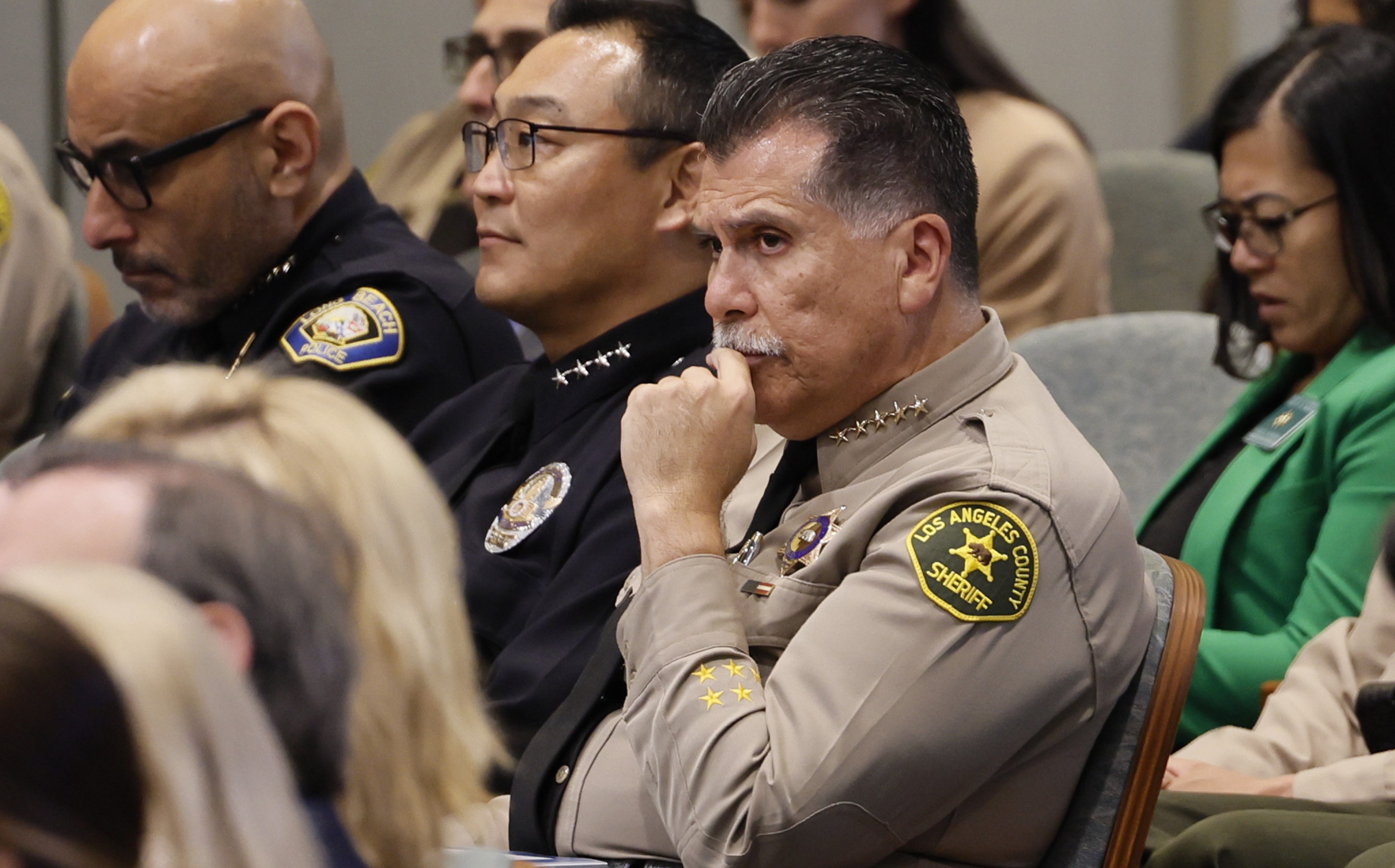
Lucas Gudiño is a 33-year-old from Los Angeles who studies and works to help thousands of young people who have gone through a situation similar to the one he experienced when he was 16-years-old.
"I shot my victim and wounded him," Gudiño said. "When they caught me, they tried to give me 85 years or life for the crime I committed, for trying to rob him, and for using a weapon."
The crime cost him 15 years of his life in prison. Gudiño said that it was a very confusing time in his life, without a specific purpose for his future.
"I was focused on gangs, on drugs, I was angry with myself, with the world," Gudiño said. "I did things for the gang for the same reason that I thought that would earn me respect."
Get top local stories in Southern California delivered to you every morning. Sign up for NBC LA's News Headlines newsletter.
His brother was also part of a gang, who he tried to imitate since he wanted to be like him. But the time he spent in prison was an even more difficult time for him.
"All that time goes by, because one loses faith and it was so hard that I even thought it was better to die than continue suffering," Gudiño said.
Those feelings of loneliness, anger and depression were what led Gudiño to gradually change his behavior.
Local
Get Los Angeles's latest local news on crime, entertainment, weather, schools, COVID, cost of living and more. Here's your go-to source for today's LA news.
"I remember that I read a book by a woman who was in a group, 'Connect With,'" Gudiño said.
The author of the book told how some teenagers had murdered her husband.
"She said that she wanted the prisoners to stay inside because they were monsters," Gudiño said. "I've never liked that word."
It was a story and a word that marked Gudiño's life, to realize that he did not want to continue being the person he had become.
"When I went to prison, what helped me was to educate myself, to focus on reading and writing," Gudiño said.
That determination to want to be someone different when he got out of prison led him to discover, "Project Rebound," a program at the University of California, which helped him see the light in those dark days.
"I'm not a bad person," Gudiño said. "I have made mistakes but, at the same time, I try to improve myself, to be the person that I know I am."
Project Rebound: Providing a Second Chance
The conviction of wanting to be someone better was the impetus for Gudiño to fight for his freedom.
"Spending 15 years of my life in prison, it was hard for the same thing that I was losing myself in anger at the gangs in prison," Gudiño said.
"The only way I tried to get out was to believe in myself that I could do better," he said.
As he prepared to be released from prison, he found a helping hand who advised him on how to face society again.
Project Rebound offered him the help he needed. The project helps people who have been in prison to be able to rejoin society and be successful.
The project supports and provides them resources to enroll in the California State University system. They also sent them letters while they are in prison to let them know that they are waiting for them when they are released.
Summer Brantner, director of Project Rebound, said that Gudiño was a little restless at first but now he is another person who is part of the project.
"Imagine, if I didn't have a job, how am I going to survive here in society and that is difficult," Gudiño said.
More than 70 members are in charge of the program, which offers thousands of young people the necessary tools and mechanisms to reintegrate into society and give them a second chance.
"They helped me here, at Cal State, to enroll in school," Gudiño said. "That's why I do the same to help other students who are coming out of prison."
According to the National Institute of Justice, people who have been incarcerated face several obstacles such as few employment opportunities, are not eligible for financial assistance, public housing and have little access to education.
"They don't trust you, you start saying what you did and they say, 'we don't want this person to work with you,'" Gudiño said.
However, despite the rejection that he may face in society, Gudiño wants to make up for lost time.
"With this second opportunity, what I urgently need to do is finish my degree, my profession, work with adolescents, have my own family," Gudiño said.
But he also regrets what he did and sends a message to his victim's family and to all those who were affected by his actions.
"Forgive me, I love my family and they are the ones who supported me a lot in all this time that I was here," Gudiño said.
"Now I recognize all the things that parents do for one, I hope they can forgive me, also to my victim. I apologize for hurting him and and other communities," Gudiño said.



